Last November, desperate for sun and warmth as we faced another grim, dark winter in Paris, Charlie and I booked a late-January trip to Cape Town.
The next day, officials in South Africa announced they had discovered a new and highly transmissible COVID-19 variant called Omicron.
We went anyway, a decision that was ratified as soon as I saw the sunset from our beach hotel on the South Atlantic. Not just because vacationing in the southern summer restored our souls as we’d hoped, but also because our time here gave me a new perspective on ways people respond to the pandemic.
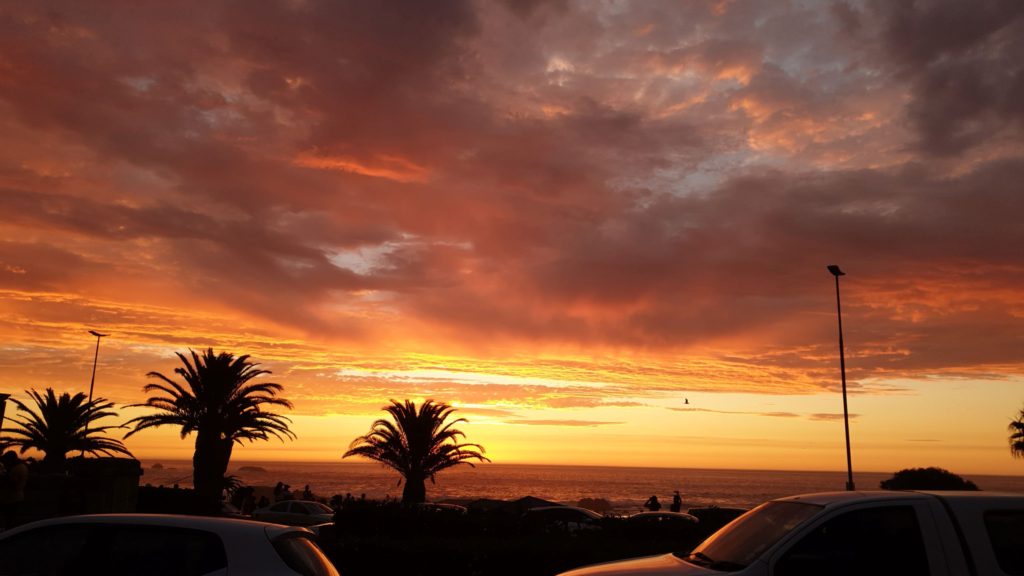
For a long time, we weren’t sure it would be safe to make the trip. South African cases soared in early December. The U.S., the European Union and some Asian countries enacted tough restrictions on travelers coming from South Africa. But then, starting mid-month, new cases began to fall dramatically.
In France and the U.S., meanwhile, COVID was exploding, mostly because of Omicron. By the time the European travel restrictions were lifted on Jan. 11, it was clear we’d actually be safer in South Africa than at home — if we could avoid getting infected on the way.
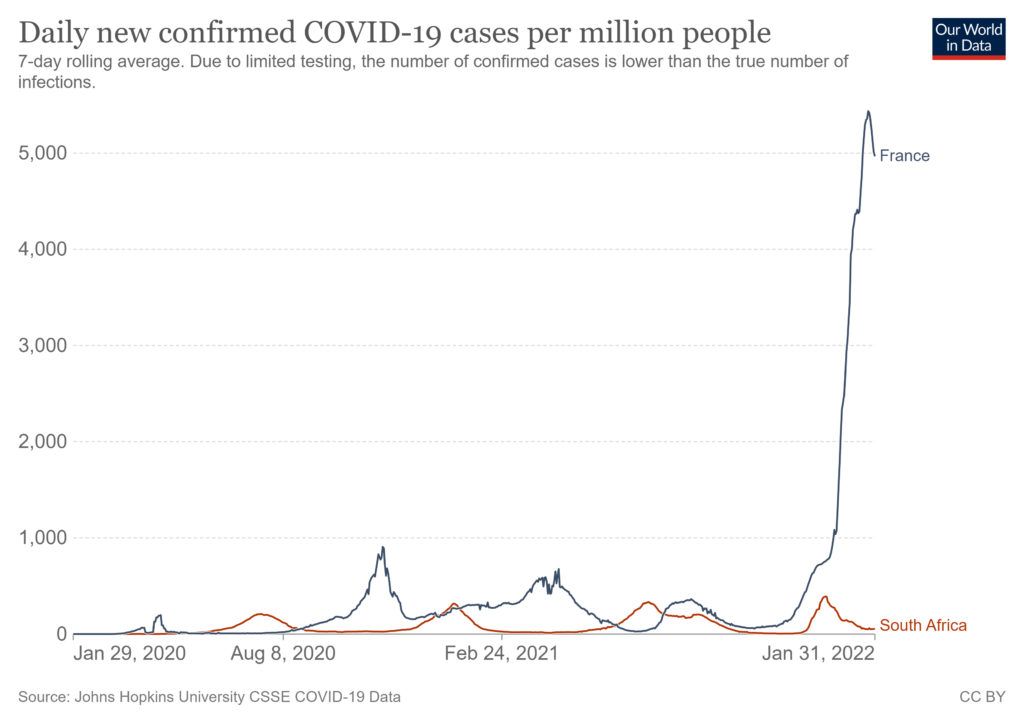
Thirteen hours in an N-95 mask, twice, is no fun, but our gamble seems to have paid off, joy-wise and health-wise. Everywhere we went, we saw how South Africans were fighting the pandemic. Or at least how the South Africans around Cape Town — they’re called Capetonians — were handling it. This might be a good place to mention the anecdotal, tourist-eyeball, arguably naïve view we brought to these observations.
We were especially struck by how careful people were about preventive measures in Cape Town, one of the most beautiful cities we have ever seen and a highly recommended destination to visit. Yes, the government had loosened some previous Omicron-related restrictions, like a ban on alcohol sales (imagine trying that in Europe!) and large gatherings. But what we in France call les gestes barrières — masking, sanitizing and distancing — were taken very seriously by almost everyone we saw.
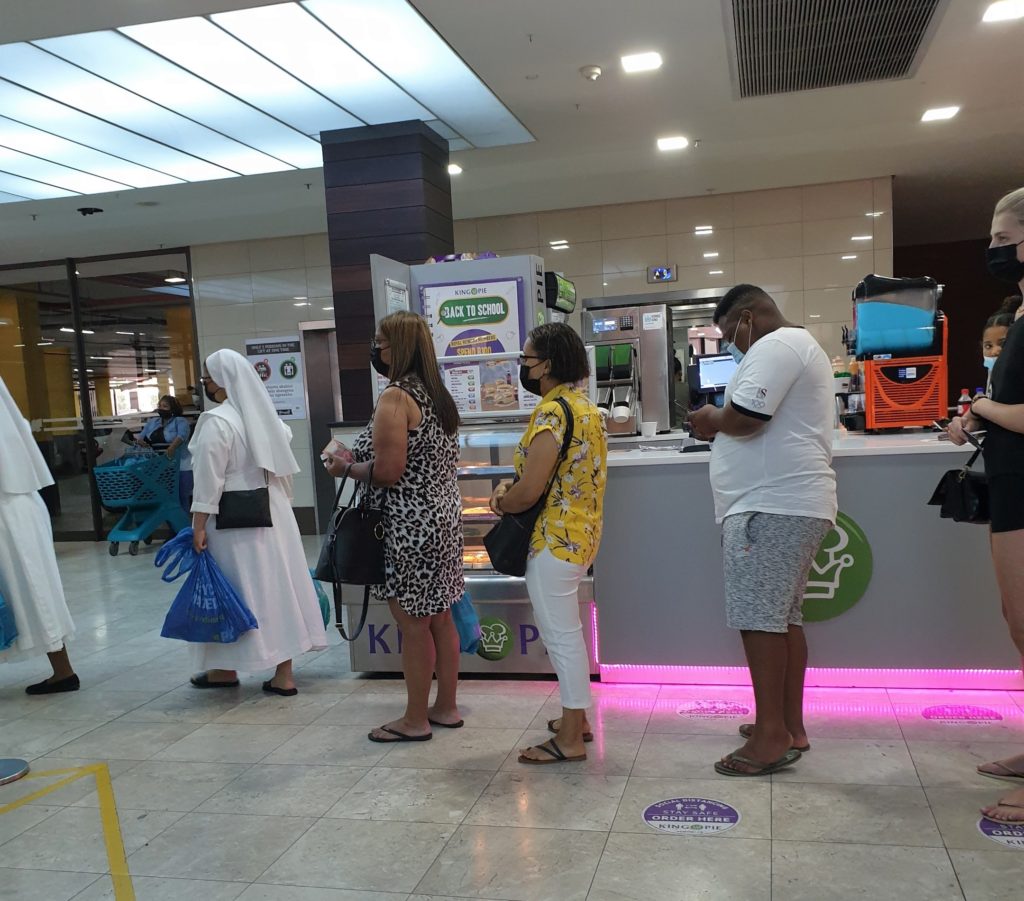
It wasn’t my first trip to South Africa. I’d come twice on business and edited many Bloomberg stories from there. I’ve long been fascinated by the country’s struggle with the legacy of apartheid, corruption and an ailing economy. But this was my first time experiencing it as a tourist, and certainly the first time amid a pandemic.
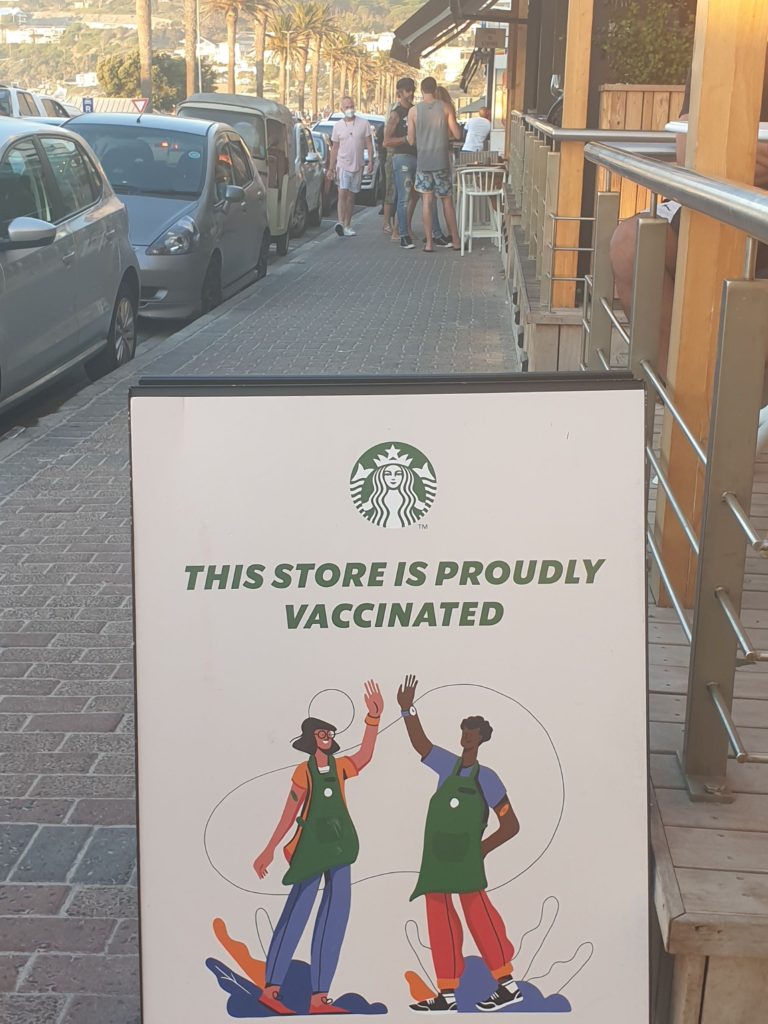
The rules were definitely enforced. Charlie was chewed out by a policeman for not having a mask while walking near the beach. Never mind that the cop himself was only wearing a bandana over his nose. The ticket-taker at the 1,300-acre Kirstenbosch National Botanical Gardens ordered us to wear our masks inside the park. “There are a lot of people there, you know.” There weren’t, and we didn’t. But everyone distanced.
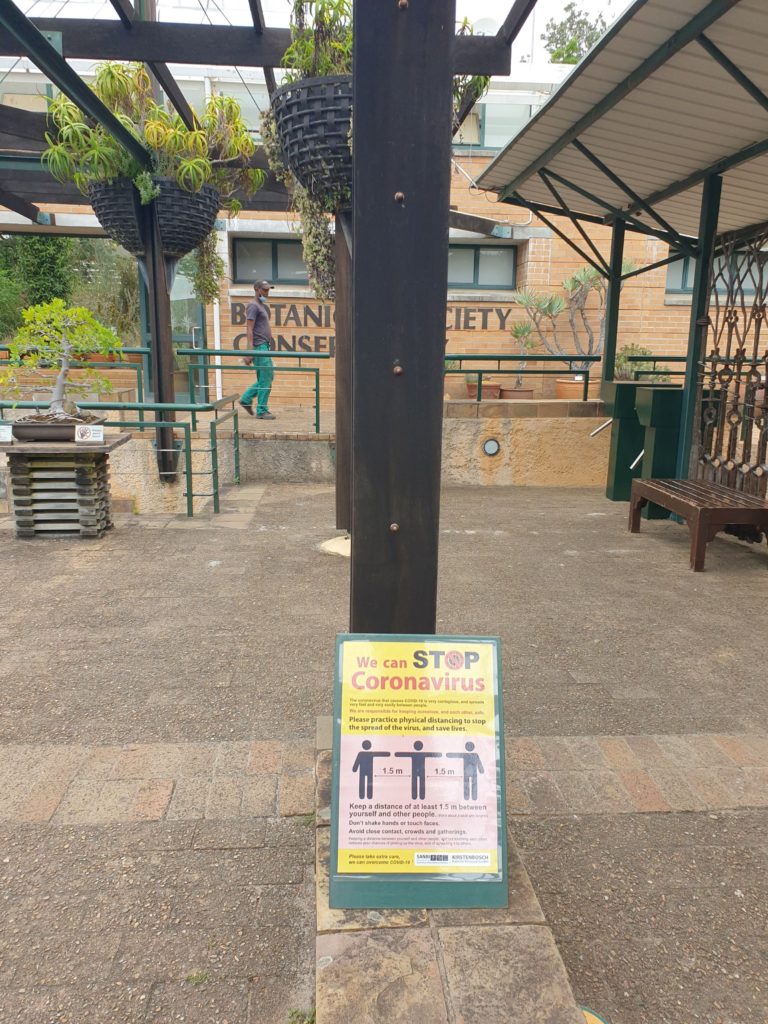
Every store, it seemed, had someone posted at the door to squirt your hands, while I’ve never seen a human squirter in France or the U.S. (A knowledgeable South African journalist friend, noting that research had shown sanitizing didn’t make much difference in transmission, called this “hygiene theater.”) We filled out track-and-trace forms at church and restaurants. Mask-wearing was quasi-universal, including outdoors.

Many of those measures are in place in France, and compliance is adequate in places where they are well enforced. But President Emmanuel Macron announced their phaseout, starting in two weeks, before cases here had even started to fall.
The thing that impressed us in Cape Town was not just what people did, but they did it in the face of a new-case rate that was 1% — yes, that’s what I said – that of France. (In the U.S. practices vary widely by state and city so it’s hard to make comparisons, but certainly Omicron hit hard there too.)
The South Africa figures are muddied by a few factors, the main one of which is the poor rate of testing.
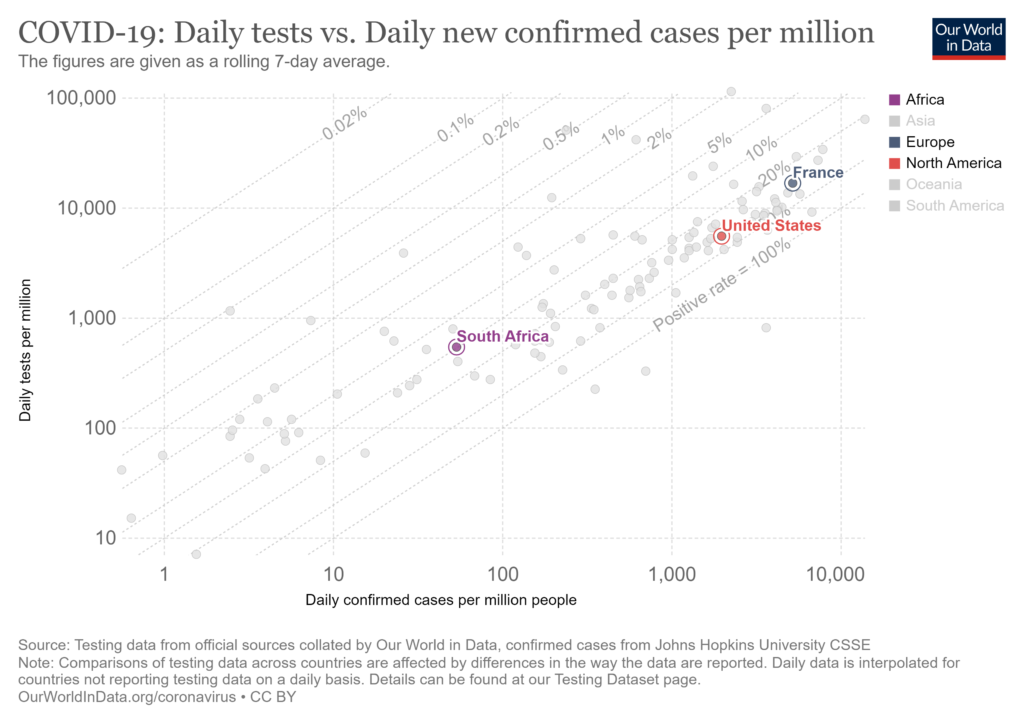
It’s summer there (have I mentioned that enough times?), so people are outside more, reducing spread. Vaccination rates – only 28% have a double dose –are lower than in the U.S. or Europe, but the rapid spread of COVID during earlier waves means high natural immunity in the population. The government is lifting restrictions, including exempting those who test positive but are symptom-free, from requirements to isolate. More loosening is coming as the government seeks a way to live with the virus. With autumn coming, the good times may not last.
Our only trip outside Cape Town was to wine country, where mask-wearing seemed just as ubiquitous as in Cape Town.
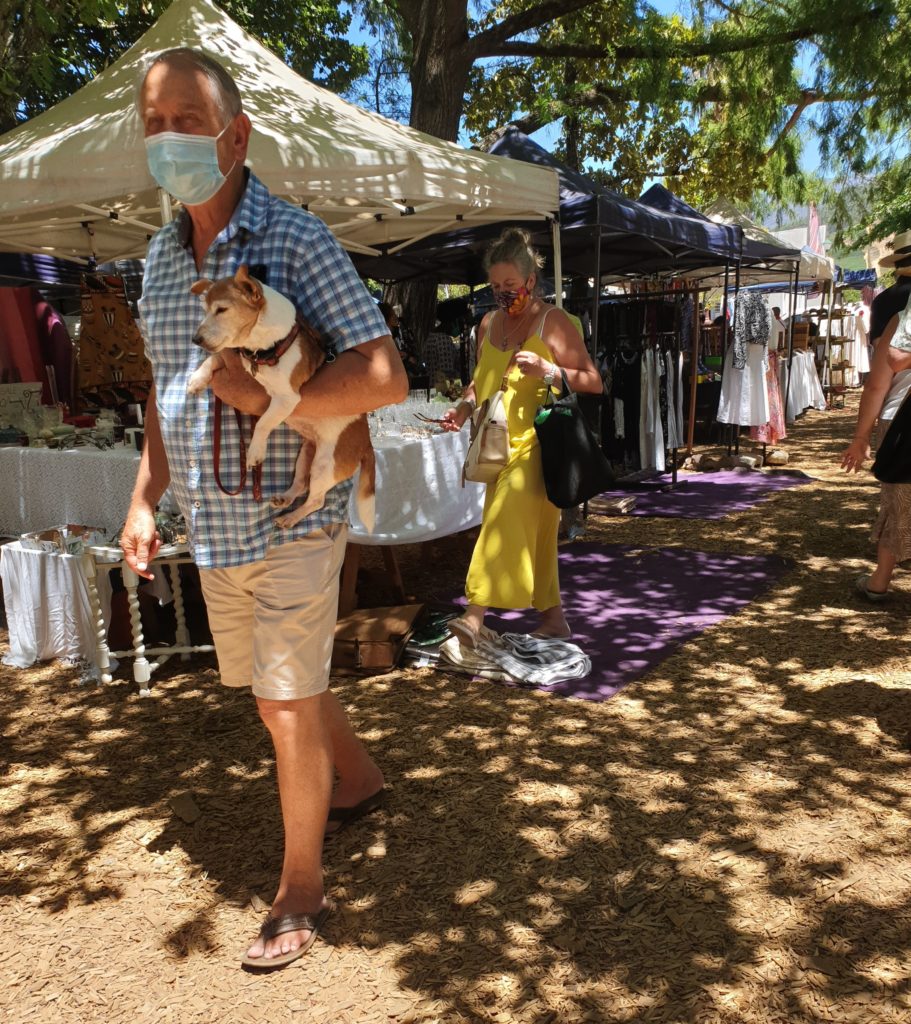
As did hygiene theater.
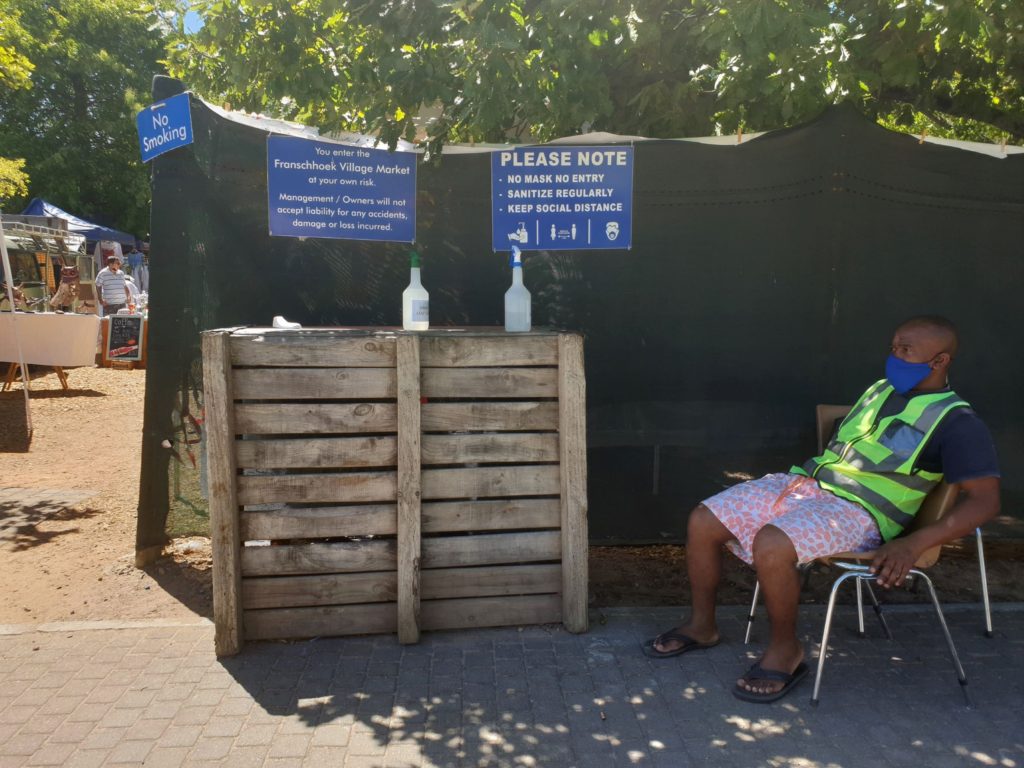
On our last day, I arranged to go horseback riding, one of the ways I love experiencing new places. Both of the women riding with me, the owner of the stable and one of her students, wore masks throughout our trail ride.
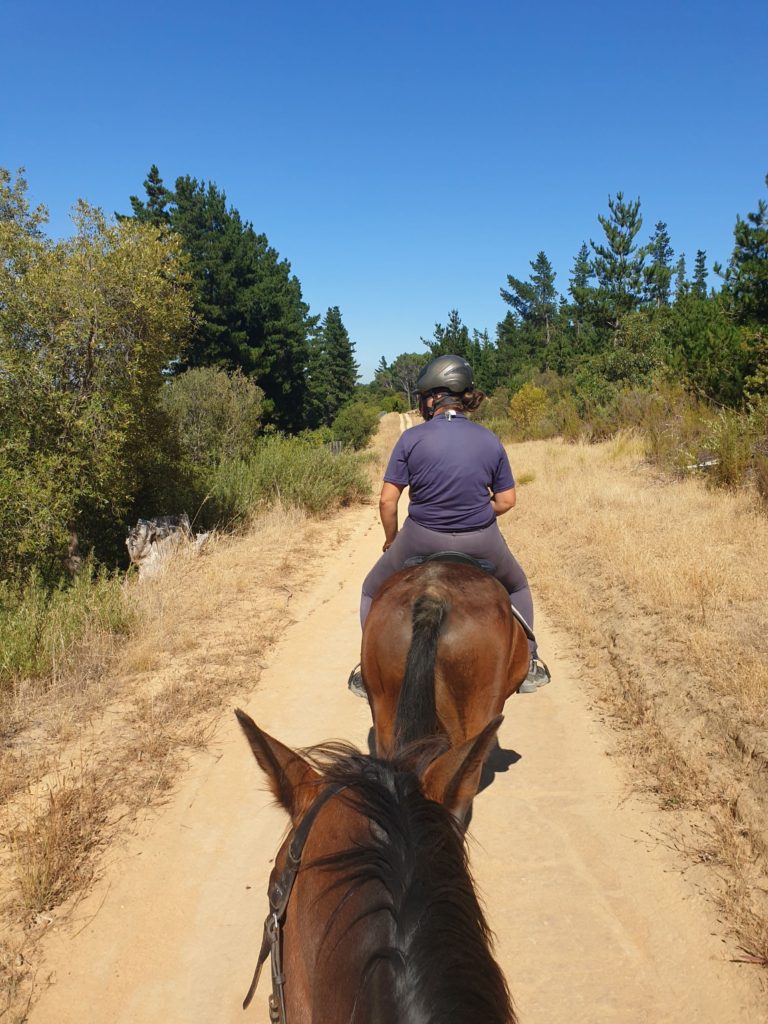
When I asked why, my guide, Kirstie, said: “I’ve worn one for two years, I may as well stick with it.”
Count me in!
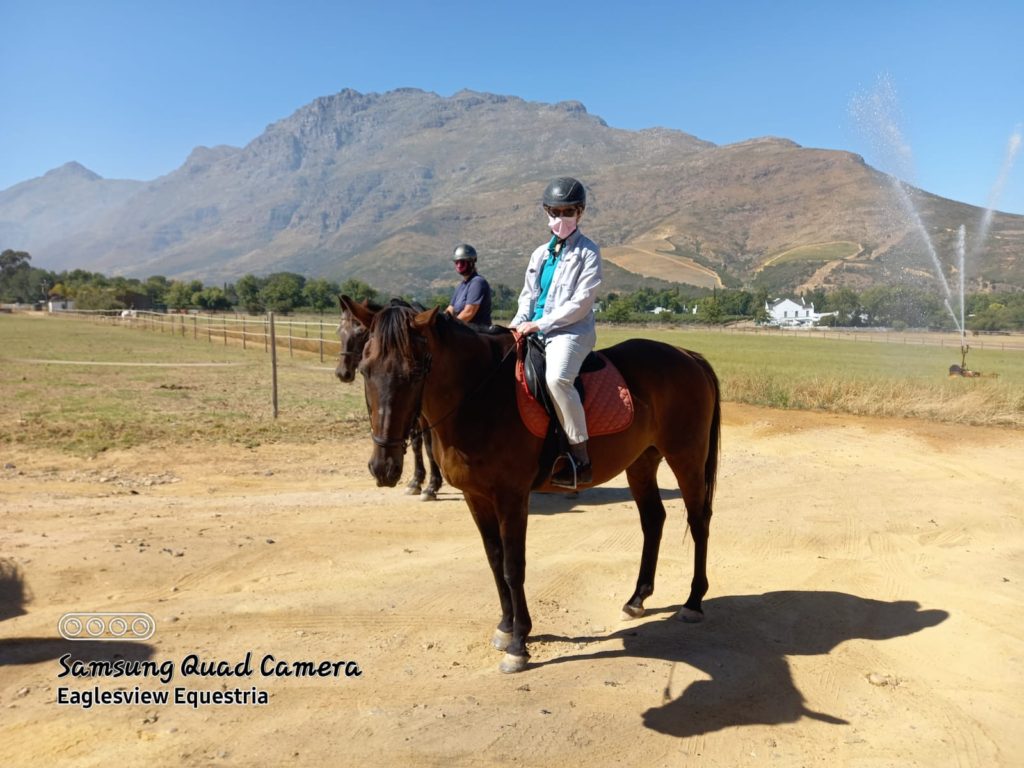
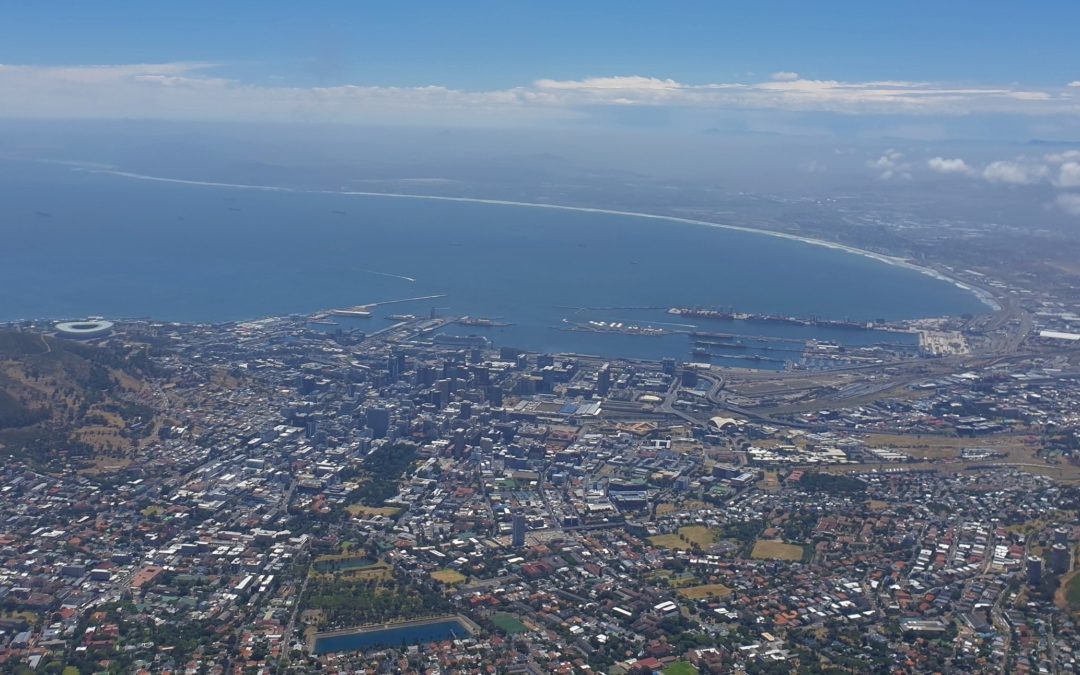
My home town ! I’m always homesick for Cape Town during the European winter – such a very special place to have been born and raised in.
I would think so! Do you try to go home only in the summer?
Great post! I am sold on Capetown
You gotta go!
Sometimes it works to just go for it and hope for the best. Well done!
Many thanks!
Wonderful. Would love to go. A very long flight from LA, though.
Well clearly all you need to do is come spend two weeks in Paris and THEN fly to Cape Town. Only a one-hour time change! 🙂
Good to get your firsthand tourist observations on the pandemic in such a far-away place Anne. I’m impressed by the way they are handling it. Sound like a great break for you two.
Thanks so much, Pat!
Thanks for the post. Braver than us.
I’m glad you enjoyed it!